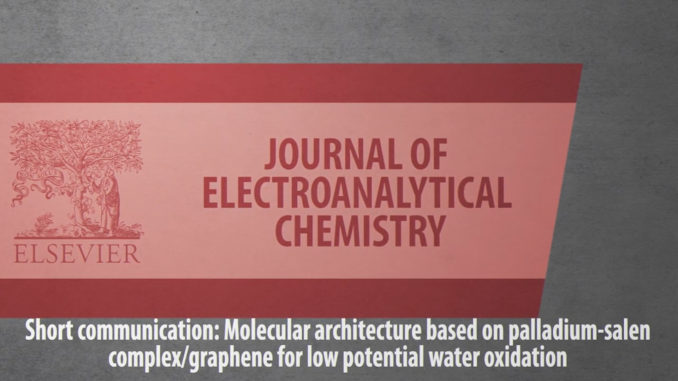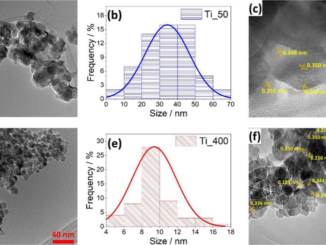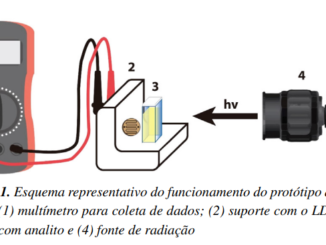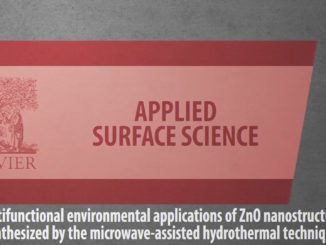
Short communication: Molecular architecture based on palladium-salen complex/graphene for low potential water oxidation
Abstract: We have developed electrocatalytic platforms based on palladium metallopolymer-graphene for the water splitting reaction. The platforms presented a low potential for the water oxidation reaction. By cyclic voltammetry and electrochemical impedance spectroscopy (EIS), the interfacial phenomena were investigated, allowing us to obtain important results that helped to determine kinetic and mechanistic information. The studies revealed that the introduction of graphene in the metallopolymer matrix increased the turnover frequency (TOF) value. Analysis of the Tafel plots obtained from the EIS data also revealed a change in the reaction mechanism after the introduction of graphene. The new platform demonstrated its applicability in the water splitting reaction for use in fuel cells.
Author(s): Oliveira, Y.A.; Olean-Oliveira, A.; Teixeira, M.F.S.
Journal of Electroanalytical Chemistry
Published: , 1 January 2021, Volume 880, 114928
DOI: https://doi.org/10.1016/j.jelechem.2020.114928
CDMF
The CDMF, hosted at the Federal University of São Carlos (UFSCar), is one of the Research, Innovation and Dissemination Centers (RIDC) supported by the São Paulo State Research Support Foundation (Fapesp), and also receives investment from the National Council Scientific and Technological Development (CNPq), from the National Institute of Science and Technology of Materials in Nanotechnology (INCTMN).




